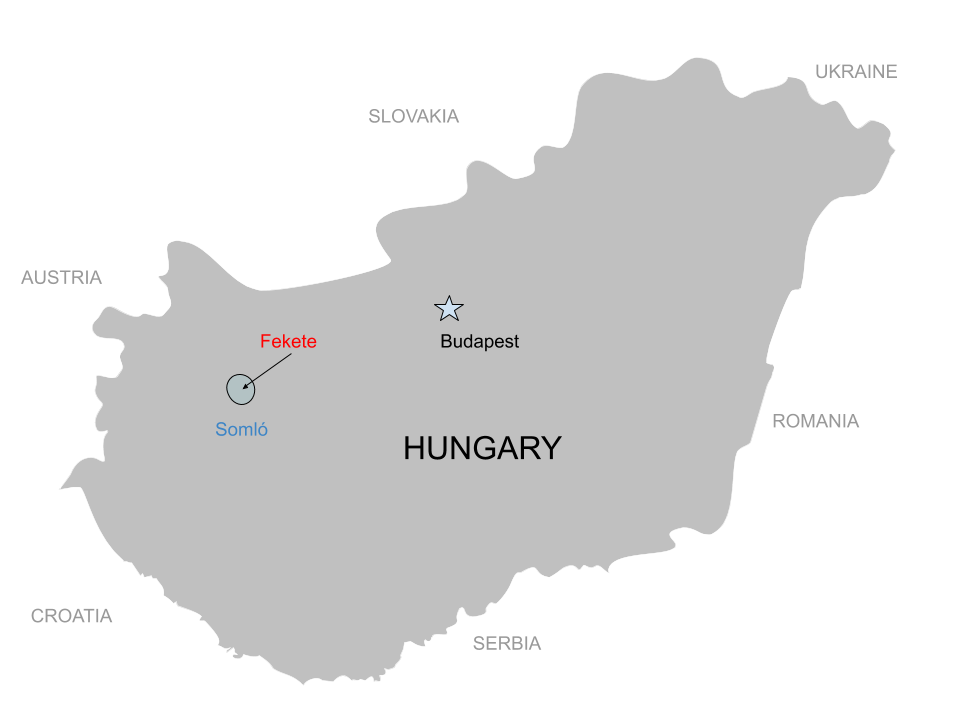2013 Fekete Hárslevelű
Somló, Hungary

Somló is Hungary’s smallest appellation and once an underwater volcano. Now dormant, its slopes of ancient sea sediment, hardened lava, and basalt are home to some of Hungary’s steepest, most densely planted vineyards. Driving up to Somló from Lake Balaton, it’s like seeing an island rise up from the ocean’s horizon – nothing else around survived the retreating ocean. The oldest writings mentioning the wine of Somló date back to 1093 and viticulture all the way back to the Romans. Hungarian Kings bought vineyards here, Maria Theresa and Queen Victoria both praised the wines, and insurgent Hungarian troops fighting against the Hapsburgs would solute the vineyards as they marched past at the end of the 17th century. Perhaps most well known is that belief that drinking the wines of Somló before copulation would guarantee a boy. Today, “The Grand Old Man” of Somló is Fekete Béla. 32 years ago, while on a trip to buy grapes for his garage production, a farmer offered to sell his vineyards on the southern slopes. Fekete accepted and approaching 90 years old, still tends his 4 hectares of beloved Fehérvári-cru. Everything is done by hand, and much like the man, his wines are honest, engaging and highly expressive of the region. Focusing on Hárslevelű, Furmint, Olaszrizling, and Juhfark, Uncle Béla, and his wife, Aunt Bori decided that 2013 would be their final vintage.
VINEYARDS
Béla was engaged in a private dialog with his land that’s only possible after decades of working it. The vineyards are not as postcard perfect nor are they planted to the newest clones but having listened to the old farmers and the council of others when we started, Béla's vines have achieved balance. With 4 hectares dry farmed on the southern slopes, the basalt soil retains heat and a mixture of alluvial and loam soils give just enough nutrients. The vineyards have a secret garden appeal that’s far from a monoculture. Organic certification is underway and more an issue of paperwork than changes to the farming. Equally important, and also according to Béla, the vineyard access to the mineral spring water of Somló is the magic, not simply rocks touching vines. In tandem with botrytis and 3 years minimum of élevage, there’s a perfect storm for making something truly unique and delicious.
WINE MAKING
The wines of Somló tend to be high in alcohol, very acidic, and chock-full of smoky volcanic minerality. All wines are meant to be aged and can be fairly aggressive when young. Much like Tokaj, this is an all white appellation so winemaking is geared for structure and strength. All of the wines are picked on the later side, have a couple of hours of maceration, spontaneously fermented in 1000L oak, aged another 10-12 months in said oak, and then 2 years minimum in stainless steel/plastic tank. The grapes do of course bring something to the table, but with time, Somló eventually takes over. That said Furmint has a little more acidity up front, Hárslevelű more aromatics, and Juhfark channels the volcanic funk.
NOTES & PAIRINGS
Literally translating to “Linden Leaf,” Hárslevelű certainly lends itself to the lime blossom teas and mild honeys that Linden trees are known for. More feminine than the Olaszrizlings and Juhfarks in the region, the texture is remarkably smooth and the acids are well balanced. Loosely bunched berries make it difficult for Botrytis to set it so the flavors are also extremely clean and lighter in body. Curries, peanut sauce, baba ganush and anything that plays off of the slightly honeyed volcanic flavors make this wine sing.
ANALYTICS & PRONUNCIATION
PRODUCER: Fekete
APPELLATION: Somló (Shoam-low)
VINTAGE: 2013
GRAPE COMPOSITION: %100 Hárslevelű (HARSHlehveh-LOO)
CLIMATE: Cool Continental
SOILS: Basalt and ancient seabed
EXPOSURE: Southern
ALCOHOL: 13.5%
RESIDUAL SUGAR: 1.3 g/l
ACIDITY: 6 g/l
